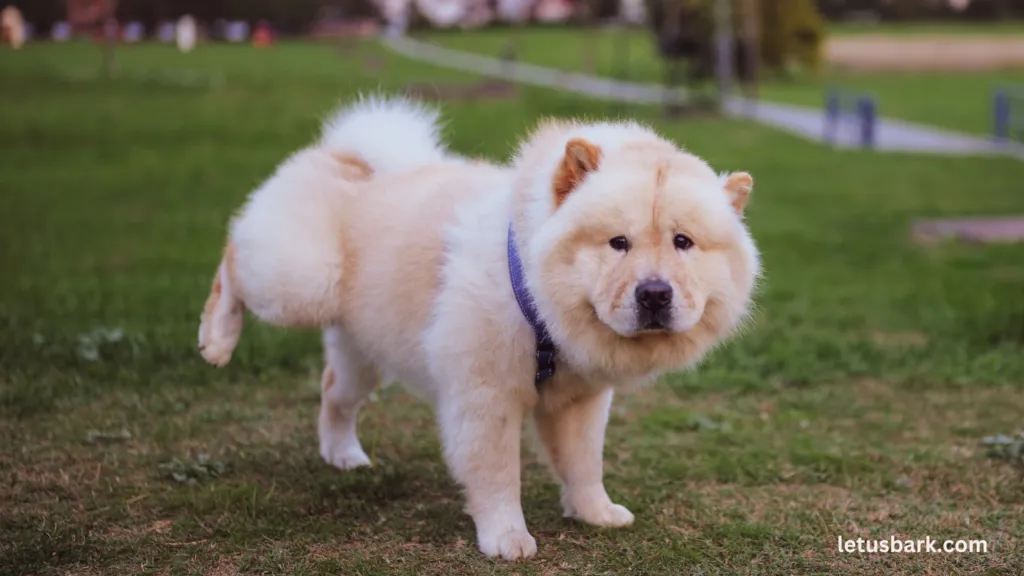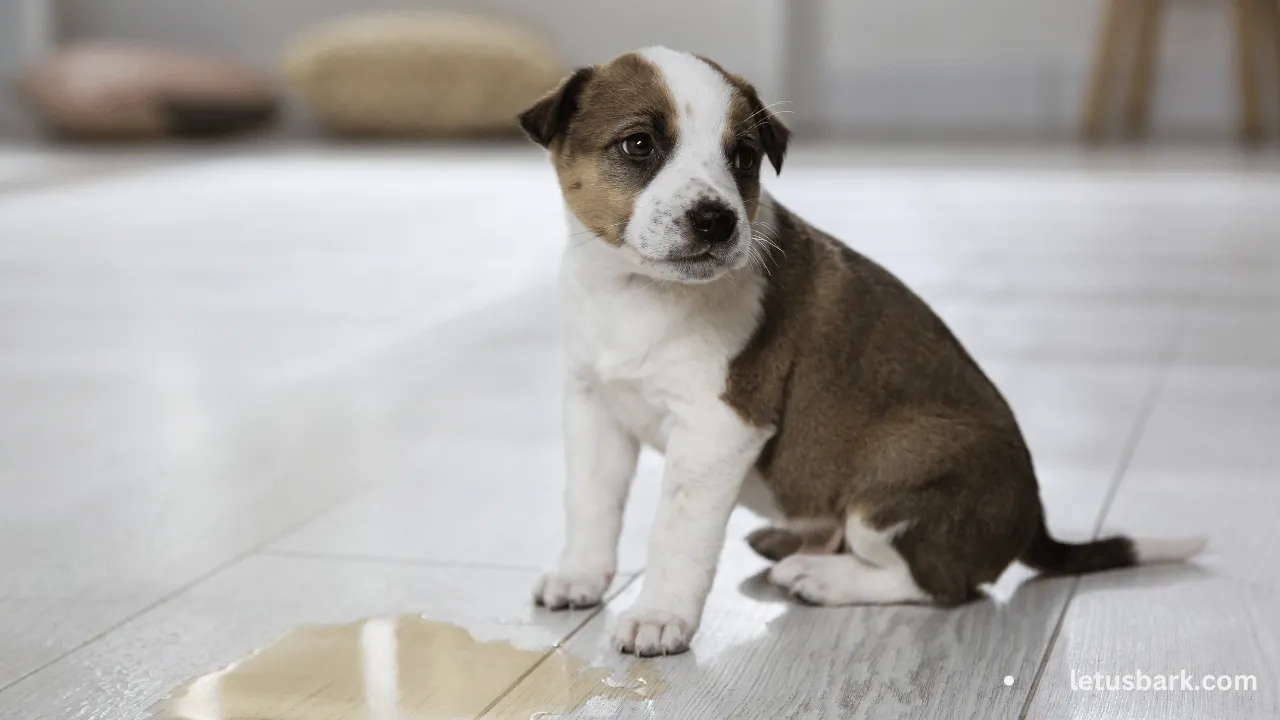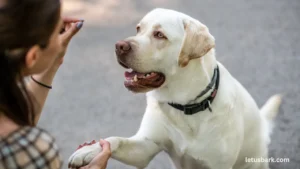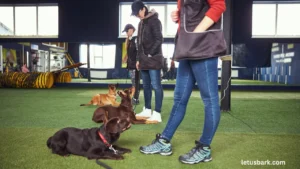A dog’s potty training is a crucial aspect of being a pet owner; but, what happens when a dog that has been trained to the point of complete obedience begins to have accidents within the house?
Having to deal with pet owners and their animal pals who are experiencing what appears to be unexplainable urination within the home may be extremely frustrating. Submissive urination is a behavior that can occur for a variety of reasons, including worry and fear, a lack of confidence, or even medical concerns. The term “submissive urination” describes this occurrence.
For the purpose of properly addressing the issue and preventing future accidents, it is essential to have a solid understanding of the reasons why potty-trained dogs urinate indoors. Pet owners are able to take measures to assist their dogs in experiencing a greater sense of safety and self-assurance in their environment if they are able to determine the underlying cause of this behavior.
There are a number of ways that can assist limit submissive urination and promote improved toilet habits. These tactics include providing appropriate training and socializing, as well as treating any underlying mental or physical concerns that may be present.
In this post, we will discuss the numerous reasons why potty-trained dogs may urinate inside, as well as provide some practical suggestions for preventing and managing this behavior.
If you have the appropriate information and technique, you will be able to assist your four-legged companion in overcoming their problems with urinating inside to create a living place that is cleaner and more pleasant for both of you.
Contents
- 1 Why is My Dog Peeing Inside?
- 2 How to Stop Your Dog from Peeing Inside
- 3 Identifying Signs of Urinary Problems in Dogs
- 4 Dealing with Stress-Related Indoor Peeing
- 5 Preventive Measures to Avoid Indoor Urination
- 6 FAQs
- 6.1 Why is my dog suddenly peeing in the house?
- 6.2 How can I stop my potty-trained dog from peeing inside?
- 6.3 What are some common reasons why my dog is peeing in the house suddenly?
- 6.4 Should I punish my dog for peeing inside?
- 6.5 When should I consider hiring a dog trainer for house soiling issues?
Why is My Dog Peeing Inside?
Behavioral Causes of Indoor Urination
One of the primary reasons why dogs may urinate or pee inside the house is related to behavioral issues. Dogs, regardless of age, may exhibit unwanted indoor urination due to stress, anxiety, or territorial marking behavior.
Medical Conditions Leading to Urinary Accidents
In some cases, urinary accidents indoors could be a sign of underlying medical problems such as a urinary tract infection, kidney disease, or incontinence. It’s essential to rule out any medical causes if your dog is urinating more frequently in the house.
Impact of Age on Dogs’ Toilet Habits
Both puppies and senior dogs can struggle with potty training, leading to urinating indoors. Adult dogs may also face issues such as incontinence or bladder problems, causing them to urinate in the house.

How to Stop Your Dog from Peeing Inside
Training Techniques for Preventing Indoor Urination
Implementing effective training methods, including positive reinforcement, can help discourage your dog from peeing inside the house. Consistency and patience are key in correcting inappropriate urination behaviors.
Creating a Consistent Potty Routine
Establishing a reliable potty schedule can aid in preventing urinating indoors. Take your dog out frequently, especially after meals and playtime, to reduce the likelihood of accidents indoors.
Seeking Veterinary Advice for Persistent Issues
If your dog continues to pee inside despite training efforts, consulting a veterinarian is crucial. An underlying medical issue could be the reason behind the house soiling, and a professional examination is necessary.
Identifying Signs of Urinary Problems in Dogs
Understanding Symptoms of Urinary Tract Infections
Look out for common signs of urinary tract infections in dogs, such as frequent urination, urinating in small amounts, or blood in the urine. These symptoms indicate a potential urinary issue that requires prompt attention.
Recognizing Behavior Changes Due to Incontinence
If your dog exhibits sudden changes in urination patterns, it could be a sign of incontinence. Difficulty controlling the bladder can lead to accidental urination indoors, necessitating a visit to the veterinarian.
When to Suspect Underlying Medical Causes
If your dog is consistently urinating indoors with no improvement, it’s time to consider potential medical causes. From urinary infections to more severe conditions, early detection is vital for effective treatment.
Dealing with Stress-Related Indoor Peeing
Addressing Separation Anxiety in Dogs
Dogs experiencing separation anxiety may resort to urinating indoors as a coping mechanism. Providing comfort, positive reinforcement, and gradual desensitization can help alleviate anxiety-driven urination.
Introducing New Pets and Avoiding Territorial Marking
When introducing a new pet, your dog may feel compelled to engage in territorial marking by urinating indoors. Proper introductions, ample space, and behavioral training can reduce stress and prevent accidents.
Minimizing Stress Factors to Prevent Urinary Accidents
Identifying and addressing stress triggers, such as loud noises or changes in routine, can prevent urinary incidents in dogs. Creating a calm environment and maintaining a stable routine can help curb stress-induced urination issues.
Preventive Measures to Avoid Indoor Urination
Spaying/Neutering Impact on Housetraining
Spaying or neutering your dog can have a positive impact on housetraining. It can reduce marking behaviors and minimize the likelihood of urinating indoors due to territorial instincts.
Maintaining Regular Exercise and Bathroom Breaks
Regular exercise and scheduled bathroom breaks are essential for preventing indoor urination. Physical activity helps regulate bladder function, reducing the urge for your dog to urinate inside the house.
Incorporating Positive Reinforcement in Training
Utilizing positive reinforcement techniques in training your dog reinforces good potty habits. Rewarding your dog for urinating in the right spot encourages desired behaviors and aids in preventing accidents indoors.
FAQs
Why is my dog suddenly peeing in the house?
There could be various reasons why your dog is suddenly peeing in the house, including behavioral or medical issues. It’s important to observe any changes in their routine or environment.
How can I stop my potty-trained dog from peeing inside?
To stop your dog from peeing inside, you should first rule out any medical issues and then work on retraining them with positive reinforcement techniques.
What are some common reasons why my dog is peeing in the house suddenly?
Some common reasons why a dog may start peeing in the house suddenly include a change in routine, stress, urinary tract infections, or marking territory.
Should I punish my dog for peeing inside?
Punishing your dog for peeing inside is not recommended as it can lead to fear and confusion. Instead, focus on positive reinforcement and addressing any underlying issues.
When should I consider hiring a dog trainer for house soiling issues?
If you are having difficulty in resolving your dog’s house soiling issues on your own, or if the behavior persists despite your efforts, it may be time to consider hiring a professional dog trainer.








